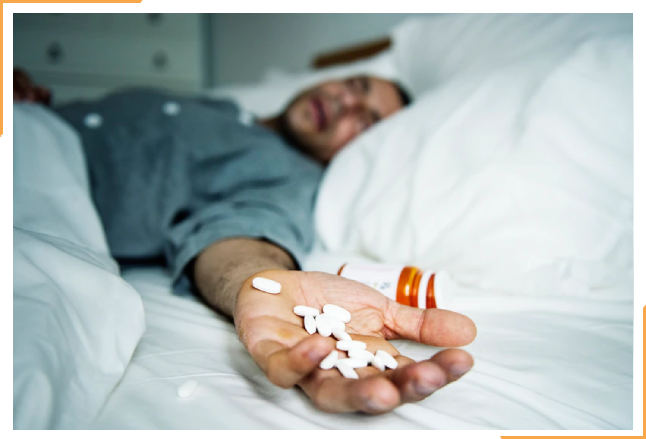What Causes And Triggers Psoriasis?
There are many different psoriasis causes. And if you are really wanting to reduce the psoriasis flare-ups many get, it is important to be aware of any possible causes and triggers of your psoriasis. There is no sense in treating psoriasis when you are aggravating it at the same time by being on a causative drug, drinking too much alcohol, or a poor diet high in take-away.
It is important to eat a healthy diet and avoid foods that could potentially trigger your psoriasis, as well as to drink at least 6-8 glasses of water daily to flush the body and keep the skin hydrated. You can reduce the severity of this condition remarkably by following a well-structured plan. And as usual, those who fail to plan their psoriasis treatment protocol – plan to fail, and will always be looking at symptomatic treatments. These are the patients we so typically see in the clinic looking for relief from psoriasis, and I call them the “symptom treaters”.

To many, psoriasis remains a mystery as far as the main causes are concerned. As earlier mentioned, research has shown about 30% of all causes is based on family history. However, there are a few lifestyle choices that may be a factor as well. Excessive drinking, being overweight, too much stress, anxiety, sunburn, and even some medications can bring about psoriasis or make the symptoms a bit late. Psoriasis may look a bit disconcerting, but it is not contagious and if you don’t have it you won’t “get it” from somebody! The symptoms affect each person differently; while one person may have small areas of patchy skin, others will have psoriasis plaques all over their body. With psoriasis, the main this is to learn to find ways to prevent breakouts for your individual situation. And this can vary widely from person to person.
Origins of Psoriasis in the Digestive Tract
As I’ve just mentioned, you have to go well beyond the skin to look for the causes of psoriasis. There is no one single cause and a psoriasis patient can have one or several causes. According to many experts such as Dr. Pagano (Healing Psoriasis) the origins of psoriasis are to be found in the INTESTINAL TRACT, and I have no doubt that once the patient has improved his or her digestive health, followed my lifestyle and diet recommendations, undergone internal cleansing and detoxification, and continued on the correct path long enough (generally 2-4 months, sometimes longer), then the results just keep on getting better.
I have noticed that until the digestive health is fully restored that the problem will persist to some degree, ranging from mild and occasionally to severe and debilitating. With a partial improvement in digestive health comes a partial improvement in skin health, with a major improvement in digestive health comes a major improvement in skin health, and until the psoriasis patient has fully grasped this concept of the digestive versus skin health, the problem will persist in varying degrees.
You may like to read my book on Psoriasis, Internal Cleansing and Detoxification for a good explanation on digestive health rejuvenation, cleansing and psoriasis, it can be found in the Psoriasis Program.
When I was researching psoriasis what struck me is that this condition in much more common in Caucasians than it is in Africans and Asians. Could it be a lifestyle or diet related cause? It is hard to know.
The Primary Cause and The Secondary Cause

Several underlying factors may trigger skin flare-ups, including the following potential causes I have outlined. I have always believed that all skin conditions are caused by a hereditary predisposition or gene, and this may well lie dormant for years without giving the person any symptoms. But then something comes along and triggers this gene or predisposition.
There are different kinds of maintaining triggers, and I have grouped these into two categories, the PMTs (Primary Maintaining Triggers) and the SMTs (Secondary Maintaining Triggers). Lets take a look these briefly, and then in a little more detail.
Primary Maintaining Triggers of Psoriasis
Primary Maintaining Triggers of Psoriasis
Let’s now take a look at some of the main causes in a little more detail; maybe you will be able to recognize them.

Poor Digestion
Poor breakdown of proteins, fats and carbohydrates is more common than you may think. Eating on the run, skipping breakfast, too much take-away food, stressful and busy lives, not chewing foods properly (very common), eating in front of TV or computer screen or IPhone, poor food choices, and several other reasons can account for this. When foods are not broken down sufficiently, poor digestion and poor absorption will occur.
You also are at a greater risk of irritable bowel syndrome, fatigue, sleeping problems and have a greater potential for food allergies forming. Beneficial bacteria such as lactobacillus and bifidobacteria rely on properly broken down starches in particular for their food supply, and when your stomach or pancreas does not function optimally, then poor digestion will often be the result.Poor digestion can lead into bowel toxaemia or “SIBO”, Small Intestinal Bowel Overgrowth, a common phenomenon and a condition I have seen countless times in those with psoriasis.
Bowel Toxins
A major theory relating to the cause of psoriasis proposes that psoriasis occurs when the liver is functioning poorly, in which case endotoxins (wastes from within the body) enter the bloodstream. The build up of endotoxins, along with poor bowel flora (too many bad bugs, not enough good ones, or an imbalance of colonic bacteria) levels has been linked with psoriasis. Poor kidney function is also implicated.
Bowel toxins are the reason I talk about internal cleansing and detoxification, vital if you want to rid your body of this condition once and for all.


Low-Fiber Diet
Bowel toxins generally come from to a sluggish bowel, and a low fiber diet is what I most commonly associate with bowel toxaemia. Many psoriasis patients I see have problems with their bowel, and a sluggish bowel or constipation will cause a lot of problems if you have psoriasis. A healthy digestive system and a good bowel turnover will ensure that endo-toxin producing bacteria are passed through the digestive at least once, preferably twice daily.
It is therefore vital that the psoriasis patient has a minimum of one, but preferably two or even three (smaller) bowel motions each and every day. This can be achieved by consuming the right kind of foods, and you will be able to read all of this information in the Psoriasis Diet book.
High Fat Diet
Some researchers have discovered that in countries where little fat is consumed, that lower incidences of psoriasis seem to exist. Some fats like animal fats (saturated) and trans fats (man-made fats) are linked more with inflammation than plant or seed based fats. Some believe that psoriasis is the result of a poor utilisation of fats in the body. My recommendation is to CUT BACK on foods containing animal fats, predominantly beef and pork fat. Chicken fat appears to be somewhat less inflammatory but is still an animal fat. Omega-3 (fish oil) is likely the best fat due top its anti-inflammatory nature.
Watch out for the less obvious forms of fat such as potato chips, chocolate, fish and chips, take-away foods, sausages, pizza and too much BBQ along with alcohol in summertime. A 2018 study found that dietary saturated fatty acids, rather than obesity itself, promote exacerbation of psoriasis in high fat diet-induced obesity. They also suggest that dietary manipulation could improve psoriasis.


Hormonal Activity such as Puberty, Menopause, PMS, Menopause
There are many complex reasons behind hormones triggering a response with psoriasis, too complex to outline. Pregnancy can certainly make psoriasis worse for some women, and in some unusual cases it can even make psoriasis disappear. A 2015 study found an association between moderate-to-severe psoriasis and some pregnancy complications, and have emphasised a trend toward a newborn with low birth weight in patients with psoriasis, especially in those suffering from severe forms.
Adrenal fatigue and burn-out is another very common trigger of psoriasis, and this is mainly due to the fact that one of the main stress hormones called cortisol, the body’s main anti-inflammatory hormone, can be elevated or suppressed during adrenal fatigue, resulting in either one or more flare-ups of psoriasis, or even a trigger to initiate psoriasis. A 2014 study indicated that HPA dysfunction (the stress axis) may be present in psoriasis, as bedtime cortisol was correlated with psoriasis severity.
A nervous shock or strain which either is the direct result from or is precipitated by the death of a loved one, bankruptcy, a divorce or other similar domestic upset, a surgical operation or even an accident. I have seen a few psoriasis patients who could recall one or more significant emotional events before the onset of their psoriasis. A meta-analysis conducted in 2018 (39 studies, more than 32,000 patients) found that 46 per cent of patients believed their disease was stress reactive and 54 percent recalled preceding stressful events.
Genetics
Psoriasis is a condition that generally can tend to run in families. There is a multifactorial pattern of inheritance. About 30% of patients with psoriasis have a family history.2 But this causative factor will not account for the majority of cases, however, there are always exceptions to the rule.


Faulty Immune System
Psoriasis may occur as a result of food intolerances and food allergies. I always check the person out carefully for any underlying food allergies. It pays to go onto a trial elimination-diet for about three weeks to determine to what degree your diet aggravates your skin condition.
Excessive activity of certain white blood cells called lymphocytes (helper T-Cells) may be an underlying cause of psoriasis.
People with a severely) compromised immune system, HIV positive and hepatitis patients can tend to have the most severe forms of psoriasis. You can read a whole lot more on this specialized topic in my book Psoriasis, Stress, and Immunity”.
Stress
One of the most important lifestyle changes to make is a focus on stress reduction. Stress is a huge trigger of psoriasis, probably one of the biggest. To understand how stress is linked in with psoriasis, you have to understand about the adrenal gland’s role in improving immunity and suppressing inflammation. Learning ways to manage stress is important for anyone who suffers from the disease.
Take some time out of the day to relax, enjoy a book, or take a brisk walk. Try not to take on too much at work and ask for help if needed. Reducing the amount of stress in your life will help prevent future flare-ups. Stress is one the biggest of all causes, and generally the most overlooked and hidden cause as well.

I have found that many people with psoriasis tend to have a flare-up after periods of any kind of stress; this can include emotional stress, or physiological stress such as sunlight exposure. Other stresses include allergic reactions, organ stress from toxic elimination problems (especially the liver), heavy metal toxicity (mercury, lead, etc.) and even stress caused by nutritional deficiencies.
There will be those who read my books on psoriasis and feel that there is ‘little scientific proof’ of a link between stress and psoriasis, but I can tell you from the research I have done, that this is certainly not the case.Just as in many dermatologic conditions, psoriasis appears to worsen with stress in a significant segment of patients, there are an incredible amount of studies which report that the proportion of psoriasis patients who respond quite strongly to stress and who notice skin aggravations in relation to stressful event ranges from 37% to an incredible 78%.
A 2018 study concludes with “a probable association between different measures of psychological stress and onset, recurrence, and severity of psoriasis. In the light of this, we suggest clinicians include “stress” as a trigger factor in their psoriasis assessment and consider psychological interventions as adjuncts.

Alcohol
Probably the biggest lifestyle change for many is to reduce but preferably stop alcohol. Drinking alcoholic beverages also increases your changes of outbreaks, and I have seen many psoriasis patients with amazing reduction in their skin plaques, simply by stopping alcohol altogether. Moderately heavy drinking can most certainly bring on psoriasis.
My strongest advice (if you can’t stop) is to limit the amount of alcohol, and if you are currently experiencing an outbreak, it is a good idea to lay off the alcohol until it subsides. Heavy drinking will also cause frequent flare-ups and prevent your psoriasis from ever fully going away.
I encourage you to stop long enough for you to see the link. You will. This cause is so important that I have placed it in a category all of its own. I’m afraid I wont be able to help you much, unless you are prepared to STOP this habit for at least a month to see the link of cause and effect. Don’t kid yourself; alcohol is a strong aggravating factor, particularly with male drinkers. Statistically, cigarette smoking increases the risk of psoriasis developing in women particularly. However, if you smoke AND drink and wish to continue to do so, AND you have psoriasis and want it gone you are living in a fantasyland. Be sure to read the Psoriasis Diet, which explain much more why alcohol is a trap for those with psoriasis.
A 2019 study found a higher than average alcohol consumption is common among individuals with psoriasis, and that alcohol represents a powerful trigger for many.
Certain Pharmaceutical Drugs
Drug Induced Psoriasis. A lesser-known cause of psoriasis is that some cases can be caused by iatrogenic (drug-induced) disease. There are several drugs described in the literature that have been associated with the initiation, exacerbation, and aggravation of psoriasis. Over the years, I have found that various people actually have a drug-induced form of psoriasis. This is particularly true with older patients or those who have been taking a psoriasis drug for several years. I have seen many cases of psoriasis in those who develop a bad case after certain types of pharmaceutical drugs were taken. One such drug is hydroxychloroquine, sometimes used for rheumatoid arthritis, which can cause severe psoriatic skin reactions.
A 2017 study mentioned that clinicians should be aware of potential associations between pharmaceutical drugs and the exacerbation of psoriasis, and that “currently a practice gap exists in the recognition and management of drug-related psoriasis”.

Types of drugs most commonly implicated with psoriasis are ACE Inhibitors (a 2020 study, drug for blood pressure), Beta blockers (a 2020 study, drug for high blood pressure), Lithium (a 2008 study, drug for manic depression), Anti malarial drugs are well known to be contra-indicated in psoriasis. Study. Drugs such as hydroxychloroquine (drug for lupus, rheumatoid arthritis, anti malaria drug), Antibiotics and antifungals (tetracycline, Nystatin) Non-steroidal anti-inflammatory drugs (such as aspirin, indomethacin, phenylbutazone), Hormones (such as cortisol, progesterone) and other drugs such as alpha-interferon and iodide.
Get your medicines checked if you are in doubt. Are you on a ‘Beta-Blocker’ ACE Inhibitor or for high blood pressure? Are you taking a drug and have noticed that you developed psoriasis AFTER you took that particular drug? Go to Dr. Google and see if the two are linked, you will probably find a lot more online than your doctor will even know about the drug – it’s all available online these days. You may want to check with your doctor if it is causing any aggravations of your skin before discontinuing it though. In fact, do you have psoriasis and are on any pharmaceutical drugs? Your medical doctor or pharmacy should be able to tell you if your drug/s have any possible skin-based side effects.
Many patients can potentially have skin conditions aggravated by pharmaceutical drugs, and how annoyed they get when they realise that it was a drug causing the problem! I’ve seen many terrible “incurable” skin conditions completely disappear once a drug was discontinued.

Commercial Soaps, Shampoo and Cosmetics
Commercial personal skin care products are often laden with many different kinds of chemicals that can potentially trigger psoriasis. Try instead more natural forms of these items; ask your local Health-food shop.
The skin should be kept supple by having regular baths, add one to two teaspoons of flaxseed oil, or wheat germ oil, almond oil, etc.
Try a chickweed-based lotion or a cream for the itch, your Health-food shop or Naturopath can help here again. You will be able to read plenty more in other booklets in The Psoriasis Program about the more natural ways of looking after your skin.
Smoking
Smoking can trigger outbreaks, so changing your lifestyle towards smoking cessation is a great idea. There are many ways to stop smoking from chewing gums to patches and pills. The sooner you can stop this habit the better.
Smoking increases your chances of developing psoriasis in the first place. A 2016 study found links between psoriasis aggravation and smoking. If you already have psoriasis, your chance of frequent flare-ups is greater if you are a smoker.
A form of psoriasis called palmoplantar pustulosis is highly associated with smoking with 95% of patients having a previous or current smoking history. (study)




